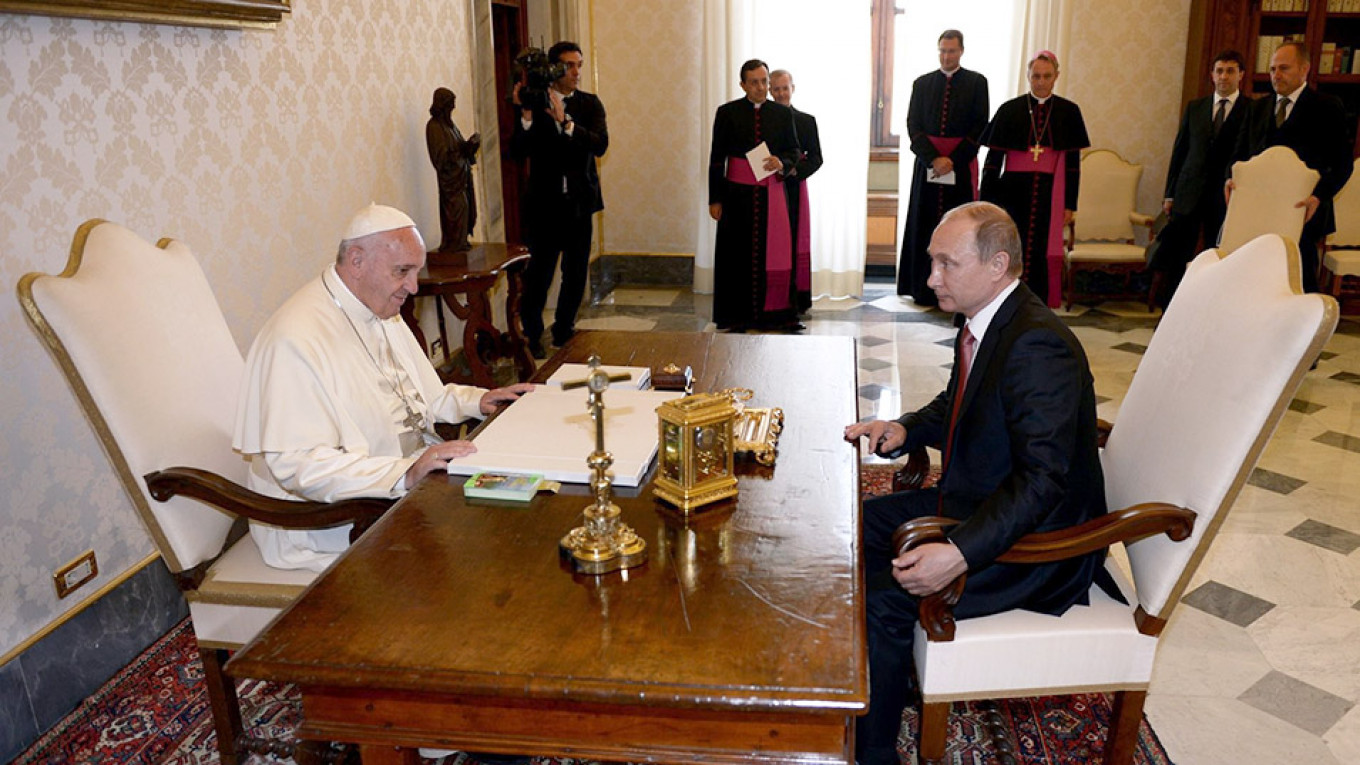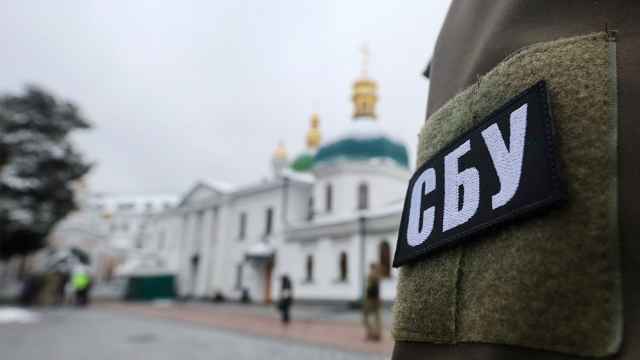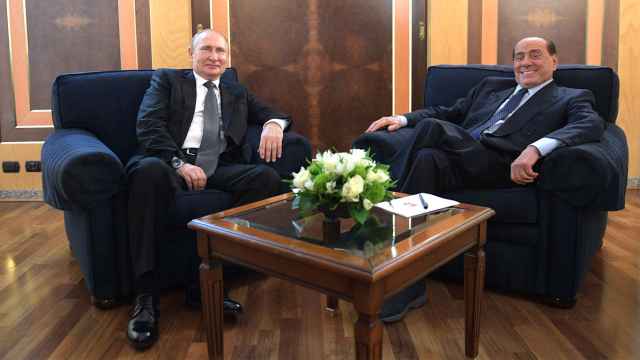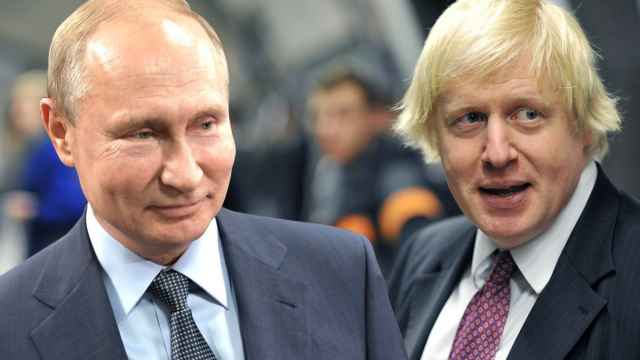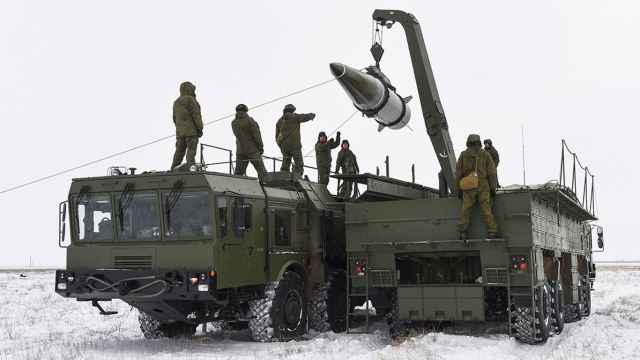Russian President Vladimir Putin met Pope Francis on Thursday, a day before Ukraine's Catholic leaders were due at the Vatican to discuss their country's crisis, and amid speculation that his visit could be a prelude to the first trip by a pope to Russia.
"Thank you for the time you have dedicated to me," Putin said at the end of 55 minutes of talks.
"It was a very substantive, interesting discussion," Putin was heard saying by reporters as he left the private study that the pontiff uses for official occasions. Details of their talks were not immediately given.
Putin, who has seen Francis twice before, arrived an hour late for Thursday's appointment. He was 50 minutes late for his first meeting with Pope Francis in 2013 and was more than an hour late for their second encounter in 2015.
After his stop at the Vatican, Putin is scheduled to see both the Italian president and prime minister and is expected to return to Moscow later in the day following an official dinner.
Ukraine, which remains a difficult issue in relations between the Vatican and Russia, was expected to be a main topic of discussions in the official papal library in the Vatican's Apostolic Palace.
When they last met in 2015, the pope urged Putin to make a "sincere and great effort" to achieve peace in Ukraine and help bring an end to fighting between Ukrainian government forces and pro-Russian separatist rebels in the east.
On Friday, leaders of Ukraine's Catholic Church and Vatican officials begin two days of meetings to discuss various problems in their country, a former Soviet republic.
Ukraine's religious world was made tense last year when the country's Orthodox Church, which for centuries effectively had been under control of the Russian Orthodox Church, declared its independence and set up a national Church.
Russia opposes the Ukrainian Orthodox Church having autocephalous, or self-governing status, saying the move had more political than religious motives.
Putin has aligned himself closely with the Russian Orthodox Church and has accused the government in Kiev of flagrantly meddling in the life of Orthodoxy in Ukraine.
Putin's encounter with the pope on Thursday comes three years after Francis held brief talks with Russian Orthodox Patriarch Kirill in Cuba — a landmark step in healing the 1,000-year-old rift between the Western and Eastern branches of Christianity.
Mikhail Gorbachev, the last leader of the Soviet Union, and Boris Yeltsin, the first president of post-Soviet Russia, had invited the late Pope John Paul to visit.
But a trip was not possible because of tensions between the Vatican and the Russian Orthodox Church, the largest and most influential in world Orthodoxy, with 165 million of the world's 250 million Orthodox Christians.
Apart from his 2016 meeting with Kirill, which was the first in history between a Roman Catholic pope and a Russian Orthodox patriarch, Francis has made a number of visits to countries with predominantly Orthodox populations.
A Message from The Moscow Times:
Dear readers,
We are facing unprecedented challenges. Russia's Prosecutor General's Office has designated The Moscow Times as an "undesirable" organization, criminalizing our work and putting our staff at risk of prosecution. This follows our earlier unjust labeling as a "foreign agent."
These actions are direct attempts to silence independent journalism in Russia. The authorities claim our work "discredits the decisions of the Russian leadership." We see things differently: we strive to provide accurate, unbiased reporting on Russia.
We, the journalists of The Moscow Times, refuse to be silenced. But to continue our work, we need your help.
Your support, no matter how small, makes a world of difference. If you can, please support us monthly starting from just $2. It's quick to set up, and every contribution makes a significant impact.
By supporting The Moscow Times, you're defending open, independent journalism in the face of repression. Thank you for standing with us.
Remind me later.



